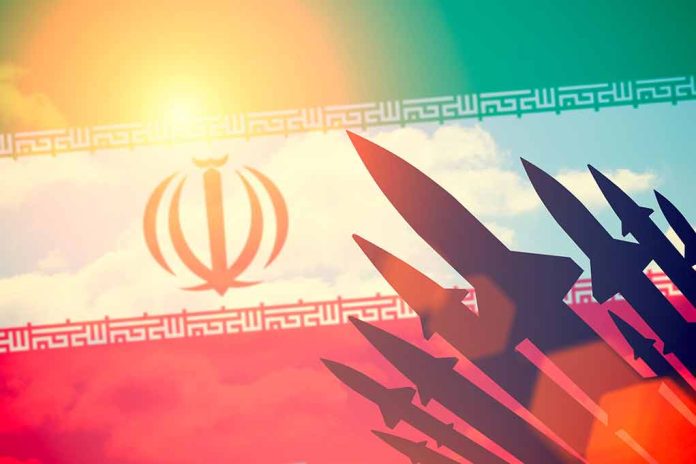
Iran vehemently denies supplying Russia with ballistic missiles amid rising international scrutiny and sanctions.
At a Glance
- Iran’s foreign minister denies delivering ballistic missiles to Russia.
- U.S. and Britain accuse Iran of supplying short-range ballistic missiles to Russia for use against Ukraine.
- New sanctions announced on Moscow and Tehran.
- Iran allegedly trained Russian military personnel to use the Fath-360 close-range ballistic missile system.
- Russia has received shipments of these missiles and is expected to use them in Ukraine soon.
Iran’s Denial Amid Accusations
Iranian Foreign Minister Abbas Aragchi has firmly denied allegations that Iran has supplied Russia with ballistic missiles. He insists that such claims are based on ‘faulty intelligence and flawed logic.’ The denial comes amid a broader strategy by Iran to distance itself from direct involvement in Russia’s contentious actions, especially in Ukraine.
These accusations emerged primarily from the U.S. and Britain. On September 10, 2024, U.S. Secretary of State Antony Blinken and British Foreign Secretary David Lammy announced new sanctions on Tehran and Moscow, accusing Iran of delivering short-range ballistic missiles to Russia, intended for use in Ukraine.
⚡️ Iran denies sending ballistic missiles to Russia, Kremlin remains evasive.
A shipment of 200 Iranian ballistic missiles reportedly arrived at an unspecified port in the Caspian Sea on Sept. 4.https://t.co/jrAs7qY0Zn
— The Kyiv Independent (@KyivIndependent) September 9, 2024
The Allegations and Backlash
Allegations against Iran include not only the supply of short-range ballistic missiles but also the training of Russian military personnel in using the Fath-360 missile system. These missiles have a maximum range of 75 miles, and shipments have reportedly already arrived in Russia, with expectations that they will be used in Ukraine’s ongoing conflict soon.
“Russia has now received shipments of these ballistic missiles and will likely use them within weeks in Ukraine, against Ukrainians,” Blinken said. “The supply of Iranian missiles enables Russia to use more of its arsenal for targets that are further from the front line.”
In response to these accusations, Iran’s Foreign Ministry spokesman Nasser Kanaani branded them as ‘propaganda’ and ‘lies’ aimed at concealing Western military support for the conflict in Gaza. This reflects the complexities of international military relations and the strategic maneuvering nations undertake to protect their foreign policies.
Kremlin did not deny #Russia receiving ballistic missiles from #Iran https://t.co/nvsAENmWbc
— MTV English News (@MTVEnglishNews) September 9, 2024
Consequences and Sanctions
Amid these tensions, the U.S., U.K., France, and Germany have introduced a slew of sanctions against Iran and Russia. These measures include travel bans, asset freezes, and restrictions on Iran Air’s flights to Europe. Furthermore, the U.S Treasury and State Department have imposed sanctions linked to Iran’s drone program in the past, showcasing a continued strategy to curb Iran’s military aids.
“One has to assume that if Iran is providing Russia with these types of missiles, that it’s very likely it would not be a one-time deal, that this would be a source of capability that Russia would seek to tap in the future,” said Maj. Gen. Pat Ryder.
The geopolitical reverberations of this controversy are profound. CIA Director William Burns has warned of the deepening defense ties among Russia, China, Iran, and North Korea. While North Korea has provided ammunition and missiles to Russia, Iran has allegedly supplied attack drones and assisted in building a drone factory in Russia.

















